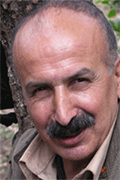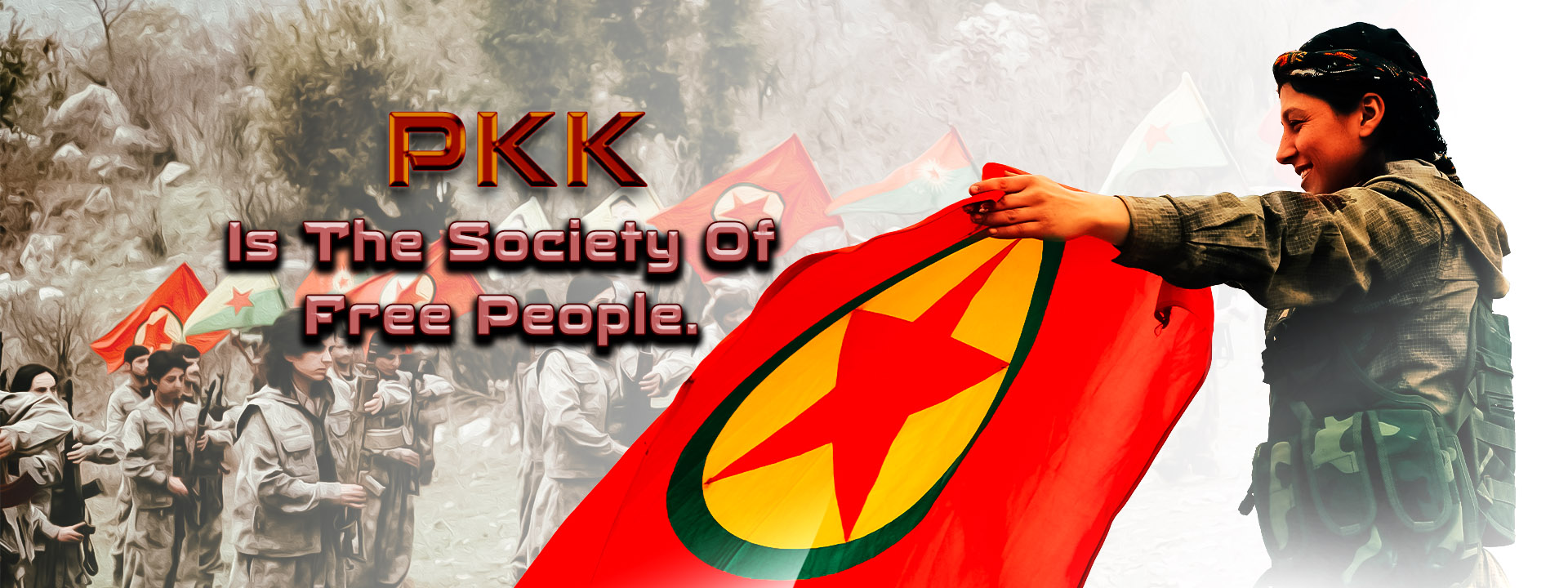 If certain circles are in favour of a Syria in which no single force is dominant, then the position of the Kurds is pivotal
If certain circles are in favour of a Syria in which no single force is dominant, then the position of the Kurds is pivotal
Erdogan recently visited the USA and it seems as if a comprehensive discussion was undertaken. This is at best, rare. The primary agenda was Syria. Within this framework the Kurdish question was a subheading. To be more precise these headings were discussed one within another.
The results of Erdogan’s visit to the USA have acknowledged the fact that the stance of the PKK and the Kurds of Western Kurdistan during this Syrian crisis has been the most accurate. It seems as if the USA, Russia, China and the West as a whole have brought themselves to a similar point. The Kurds have established themselves as a third way in Syria. They did not side with either the current regime or an opposition completely lacking in democratic and liberationist characteristics. Both sides were deemed insufficient. Consequently, they are proving in practice that a third way is possible. In fact, they are extending their claim that without an alternative to these ‘sides’ the crisis in Syria cannot be overcome. Currently the USA, Europe, Russia and China are in the search for a third way.
Bashar Esad will leave Syria and the Baas regime will cease to exist, but a Syria in which political Islam will be sovereign will not be acceptable. There will not be a single hegemony. It seems as if a democratic Syria in which all forces will coexist is inevitable. Political Islamists will not be side-lined as they were by the Baas regime, but they will also not be the primary power holders. A democratic reconciliation that will enable the coexistence of all ethnic, religious and social sections of the community will materialise. In this system the Kurds, Alevis and all other ethnic and religious communities will be able to express themselves and organise their societal affairs. Sunni Islam will also be able to express itself freely without the need for the establishment of its own hegemony.
This reality will make minorities like the Kurds and the Alevis a fundamental basis of democratisation in Syria. The Kurds have already proven this. The Alevis will eventually see that their one time hegemonic status will no longer persist and therefore it will be in their interest to strengthen the democratic mind-set. The Alevis can no longer insist on supporting an authoritarian rule. From now on any such insistence will endanger the ability of the Alevis to participate in the free and democratic future of Syria. Therefore, their very situation demands of them to be a force for democratic change. A Syria in which political Islam is not the hegemonic power is something that the Alevis can support. This option will also be strongly advocated by the Armenians, Assyrians, Yezidis, not to mention Women’s organisations and leftist democrats.
The USA, the EU and Russia will have to settle for a truly democratic Syria. Erdogan’s visit to the USA has shown this. The message to Turkey has been to not make itself an obstacle in front of this type of development. From now on, Turkey will stop supporting the efforts of radical Islamists. The message to the other more political Islamists that Turkey is in relationship with will be somewhat different: “consolidate your political existence and we will consolidate your positions in the newly formed Syria”. Turkey has been made to accept and adopt this new policy.
This policy does not completely fall in line with the Kurdish project; there are important differences. These forces will obviously be wanting to place their own collaborators within the system. However, the Kurds will be party to the third way solution in Syria. The Kurds will have their status and freedom accepted. In a democratised Syria their current gains will be protected; because for a Syria that wants to adopt the third way, this is imperative. If certain circles are in favour of a Syria in which no single force is dominant, then the position of the Kurds is pivotal. The moderate seeming opposition in Syria are in essence nationalists, hence its conservatism in regards to Kurdish rights. However, even they are in no position to reject the rights and freedoms of the Kurdish people. This is because the rejection of the rights of the Kurdish people is only possible in an authoritarian hegemony; the circumstances in the region, however, no longer allow for any such hegemony.
Esad, it seems, is on his way out, but the structure of the state is not about to be completely changed. The Baas party will continue to exist and Arab nationalism will also make itself felt. This Baas party however, will base itself on Sunni Arabs. The position of the Alevi Arabs necessitates that they steer clear of nationalism and the alienation of other communities. The political preferences of the Alevis will change in parallel with the formation of ‘new Syria’. The Alevis and the Kurds must be seen as the guarantors of a democratic Syria. The comprehension of this fact by international powers is a positive development. The current impasse has forced them to this. Turkey, after realising that the AKP’s policies were ineffective, has had to reluctantly approve of this new policy.
Erdogan’s statement that ‘we will oppose terrorism’ is meaningful. By this he does not mean the PYD, as he used to. Although in the meetings with the USA ‘the threat from PYD’ was mentioned, the organisation taht is seen as terrorist in Syria is the El-Nusra front, in other words, Al-Qaeda. The USA, the EU, Russia and China will take note of the opposition forces, but they will also move to isolate those that they have deemed as terrorist. Once this new project has matured and starts being deployed, those that stand in its way will also be done away with. Anyone wishing to prolong the conflict and sustain instability will also be eradicated. Any force that is not interested in becoming the new hegemonic force in Syria, but is hoping to take part in a democratic Syria will be able to do so. However, the new constitution will stand in the way of anyone fostering ambitions of being the new dictators of Syria.
These new circumstances will bring problems for Turkey and those organisations that it previously had ties with. Turkey, who has secret relations with Al-Qaeda in Iraq and supported this front in Syria, is now faced with an important decision; just as it has previously cut off strong ties it once had with Iran and the current Syrian regime, it must now do the same with organisations like Al-Qaeda. In short, Turkey’s previous approach of trying to please everyone has come to an abrupt end. Turkey is once again reorienting itself in-line with the Western camp that it has always been a part of. No longer will it make any incongruous outbursts. Saying this, if Turkey is successful in solving its Kurdish question and remains in pursuance of its own process of democratisation, than this will no doubt widen its area of manoeuvrability in the International arena. In the 21st century, the only way this external area of manoeuvrability can expand is through internal democratisation. It is extremely clear that from now on without extensive democratisation or without the formation of a democratic society, no force can adopt anti-imperialist and anti-capitalist policies. In Turkey this road passes through the solution of the Kurdish and Alevi questions and the question of radical democratisation.
It seems that one of the central outcomes of the AKP’s visit to the USA was an agreement on a Syrian project in which there is no place for a political Islamist hegemony. If the AKP, however, rather than pursuing hegemonic aspirations decides to insist on a democratised Turkey, it will firstly strengthen its own political foothold, and secondly, it will expand its scope of manoeuvrability in the face of international pressure.
Capitalist modernity has been forced to apply for a third way in Syria. Turkey has been brought to a stage where it too must solve its Kurdish question and also transform Turkey into a fully democratic country in which no community is hegemonic. The PKK leader saw an opportunity for exactly this and this is why he initiated the process of democratic solution. If this process is capped with success then it will not only be Turkey that is democratised, but the process itself will be a model for the solution of all problems encompassing the region. If Turkey really does want to be an effective force in the region, than it really must do so within the framework of democratic transformation. Only if Turkey becomes a beacon of democratic transformation can it have a positive impact on the developments in Syria. Contrary developments, however, will drag Turkey back to its previously ineffective role. Consequently, Turkey will only be a thorn in the side of all neighbouring countries; that which neighbouring countries will only want to neutralise.
Our sincere hope is that Turkey chooses to become a beacon of democracy and freedom as opposed to anything else.
Mustafa KARASU
http://www.pkkonline.net/en/index.php?sys=article&;artID=196



